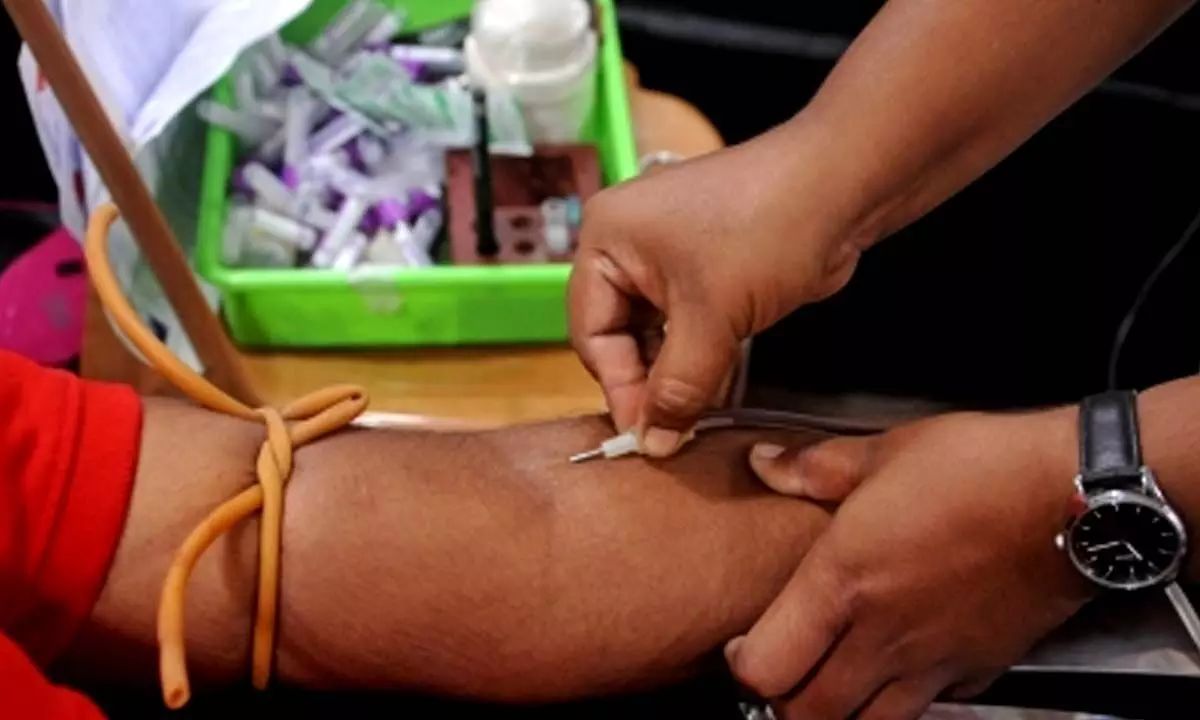Clear national blood policy best way to ensure patients receive safest possible blood: Experts

New Delhi: A clear national blood policy, with all its stakeholders working together, is the best way to ensure that patients receive the safest possible blood whenever they need it, said experts on World Blood Donor Day on Friday.
World Blood Donor Day is observed every year on June 14 to honour and thank those people who donate their blood, voluntarily and unpaid, to give others the gift of life.
According to Rahul Bhargava, Principal Director & Chief BMT, Fortis Memorial Research Institute, Gurugram, investing in blood bank infrastructure and advanced testing allows us to catch potential issues early on.
"That's why robust government initiatives are crucial. Encouraging voluntary donation and stricter donor screening tests are vital for blood donation and access to safe blood," Bhargava told IANS.
According to the World Health Organization (WHO), the national blood system should be governed by national blood policy and legislative framework to promote uniform implementation of standards and consistency in the quality and safety of blood and blood products.
In 2018, 73 per cent of reporting countries, or 125 out of 171, had a national blood policy. Overall, 66 per cent of reporting countries, or 113 out of 171, have specific legislation covering the safety and quality of blood transfusion, as per WHO data.
"The government should urgently consider consolidating the regulatory framework for blood tender services under a single legislation- blood law. Blood should be brought out of the Drugs and Cosmetics Act, and the regulator should look much beyond the licensing of blood banks," said Anubha Taneja Mukherjee, Member Secretary, Thalassemia Patient Advocacy Group.
According to experts, it is important to screen for infectious agents such as malaria, HIV, hepatitis B and C, and syphilis to prevent transfusion-transmitted infections (TTIs).
Additionally, performing blood typing, antibody screening and crossmatching to ensure immunological compatibility is crucial, thereby preventing hemolytic and other transfusion reactions.
"These measures safeguard patients, particularly those with compromised immune systems or requiring multiple transfusions, from potentially life-threatening complications," said Shruti Kamdi, Consultant Transfusion Medicine, SRCC Children's Hospital, Mumbai.
She also mentioned that comprehensive testing and strict adherence to safety standards are "fundamental in maintaining a reliable blood supply and ensuring the efficacy of transfusion therapy".


